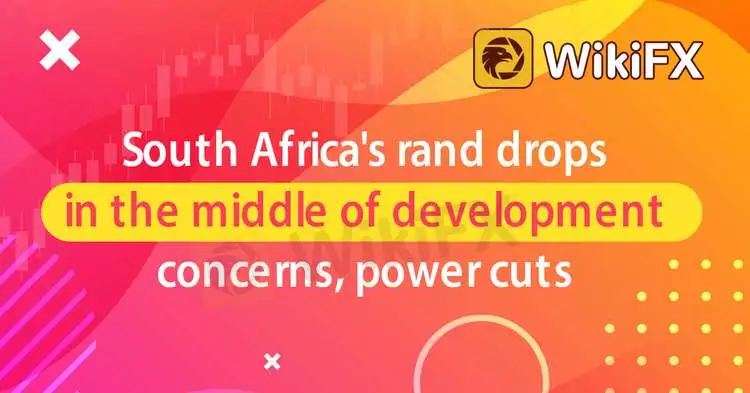简体中文
繁體中文
English
Pусский
日本語
ภาษาไทย
Tiếng Việt
Bahasa Indonesia
Español
हिन्दी
Filippiiniläinen
Français
Deutsch
Português
Türkçe
한국어
العربية
South Africa's rand drops in the middle of development concerns, power cuts
Abstract:At 0610 GMT, the rand traded at 16.2270 against the dollar, around 0.45% weaker than its previous close.

The South African rand fell in early trade on Monday in the middle of subdued risk-taking as
financiers looked for security as a result of concerns about worldwide growth, while power cuts on
the domestic front shadowed the economic growth overview.
At 0610 GMT, the rand (USDZAR) traded at 16.2270 versus the buck, around 0.45% weak than its
previous close.
Investors have crowded to the safe-haven U.S. buck on worries regarding the U.S. Federal Get's
ability to moisten inflation without triggering a recession, in addition to bother with reducing growth
occurring from the Ukraine crisis and the economic results of China's zero-COVID-19 plan.
At home, battling state power utility Eskom stated on Sunday that it would boost the hours of the
day-to-day power cut for Monday and also Tuesday due to the fact that it shed much more
generation capacity over the weekend.
Market interest this week is likewise on a financial policy choice by the South African Reserve Bank
that will be introduced on Thursday.
A Reuters poll released on Friday anticipated the financial institution would make its very first 50
basis factor repo rate trek in greater than 6 years, taking it to 4.75% (ZAREPO= ECI), to stop
possible second-round effects from greater consumer costs.

Disclaimer:
The views in this article only represent the author's personal views, and do not constitute investment advice on this platform. This platform does not guarantee the accuracy, completeness and timeliness of the information in the article, and will not be liable for any loss caused by the use of or reliance on the information in the article.
Related broker
Read more

Bitpanda Secures Full Broker-Dealer License in Dubai
Bitpanda has officially obtained a full broker-dealer license from the Dubai Virtual Assets Regulatory Authority (VARA), marking a significant milestone in its international expansion. This approval, which follows preliminary authorization granted three months earlier, enables the European digital asset exchange to introduce its comprehensive suite of virtual asset services to investors in the United Arab Emirates (UAE).

Gold Surges to New Highs – Is It Time to Buy?
Recently, gold prices have once again set new records, surpassing $3,077 per ounce and continuing a four-week winning streak. Is It the Right Time to Invest?

Why Does the Yen's Exchange Rate Fluctuate Repeatedly?
JPY Exchange Rate Fluctuations: How Should Investors Respond?

Hantec Markets Launches InsightPro: AI-Powered Real-Time Trading Signal Tool for Traders
Hantec Markets introduces InsightPro, an AI-powered trading tool offering real-time market insights, signals, and analysis for better trading success.
WikiFX Broker
Latest News
Enlighten Securities Penalized $5 Million as SFC Uncovers Risk Control Failures
Why Are Financial Firms Adopting Stablecoins to Enhance Services and Stability?
Experienced Forex Traders Usually Do This Before Making a Lot of Money
Octa vs XM:Face-Off: A Detailed Comparison
When High Returns Go Wrong: How a Finance Manager Lost RM364,000
Bridging Trust, Exploring Best—WikiEXPO Hong Kong 2025 Wraps Up Spectacularly
Fidelity Investments Explores Stablecoin Innovation in Digital Assets Sector
Interactive Brokers Expands Crypto Trading with Solana, XRP, Cardano, and Dogecoin
SEC Ends Crypto.com Probe, No Action Taken by Regulator
Why More People Are Trading Online Today?
Currency Calculator







